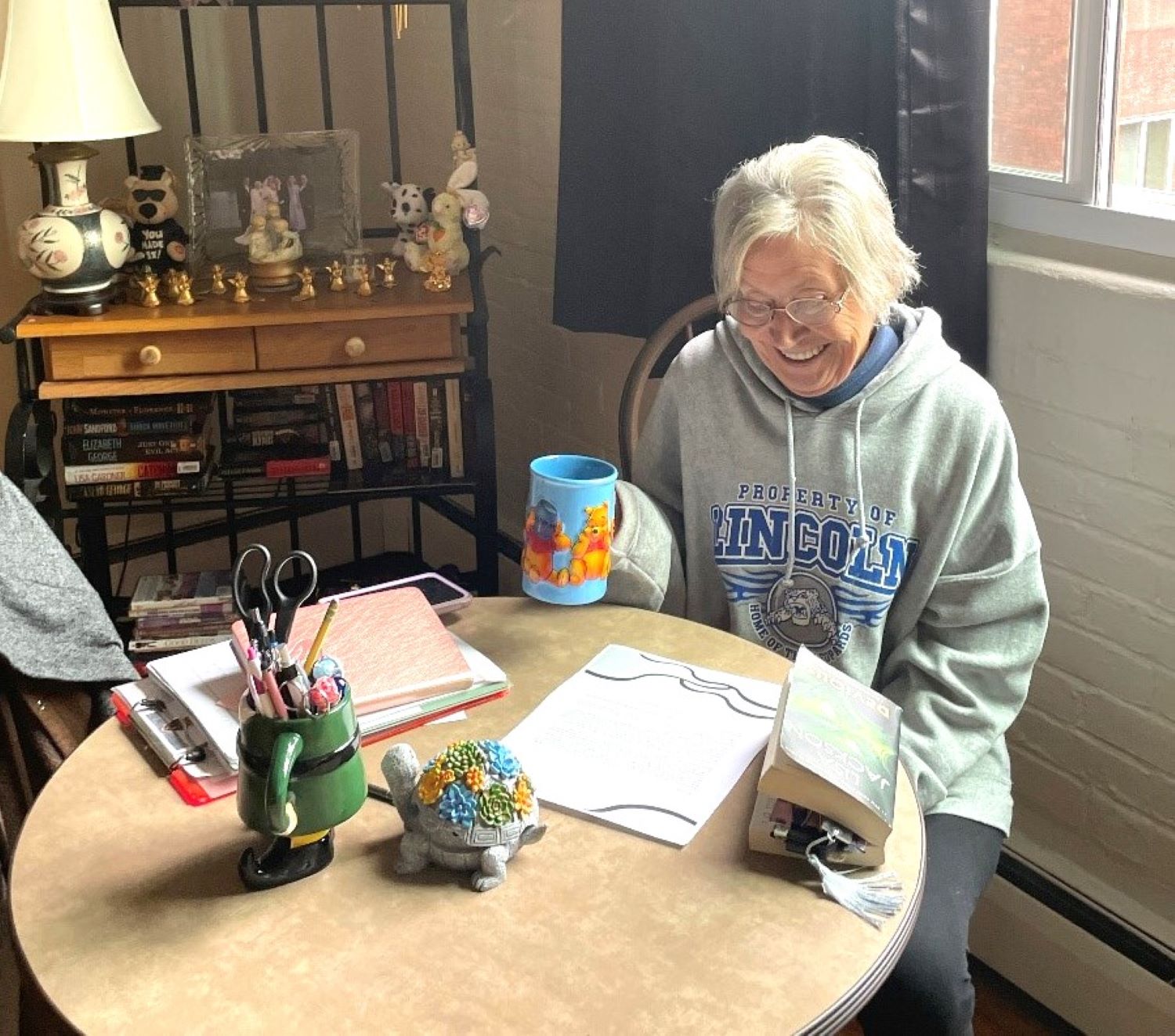<< Back
Turning Temporary Respite Into a New Life

January 26, 2024
Deborah Lawrence had never heard of the respite program at Rushford until a change in her living situation left her needing it.
After losing her home and entering outpatient treatment at Rushford for depression, Deborah worried about how she would stay on track when her daughter and son-in-law, with whom she lived, went out of town for an extended period of time. They were also worried about her being left alone.
Insurance referred the family to Rushford’s respite program, which is designed to offer accessible, temporary relief to people experiencing overwhelming or difficult stressors that significantly affect their mental health.
Darcy Lauretti, respite program operations manager for Rushford, part of the Hartford HealthCare Behavioral Health Network, explains typical stays in the 10-bed program, funded by the state Department of Mental Health and Addiction Services, is seven to 14 days.
“People come to us from the emergency room, inpatient care, an outpatient provider or community agencies,” she says. “They come to respite because they are struggling psychiatrically and need help. We provide a safe, supportive environment where they are linked to Rushford community support, clinical and case management programs.”
For Lawrence, her time in respite opened doors for a whole new way of life.
“We were able to admit her into our program and help her stabilize,” Lauretti says. “As we got to know her, it became clear that she had a vision for her life. She wanted to return to independent living.”
While in the respite program, Deborah attended clinical day programming, participated in respite activities, socialized with others and worked on life and coping skills.
The Rushford treatment team also worked with her and her family to find her a place in Rushford’s Community-Based Initiative (CBI) in Meriden, an apartment building where patients live independently but have Rushford staff embedded around the clock. With the support of Lareina Lacz, program operations manager, and CBI staff, Deborah moved into a new apartment about six months ago with her cat Ashlee. She still receives outpatient care from Rushford and is thriving.
“I am forever grateful,” Deborah says. “Their caring and compassion, just being there to listen, made my days and nights bearable. Their comfort took away all the bad emotions so that I could achieve my goal of getting a place to call home. I couldn’t have done it without any of them.”